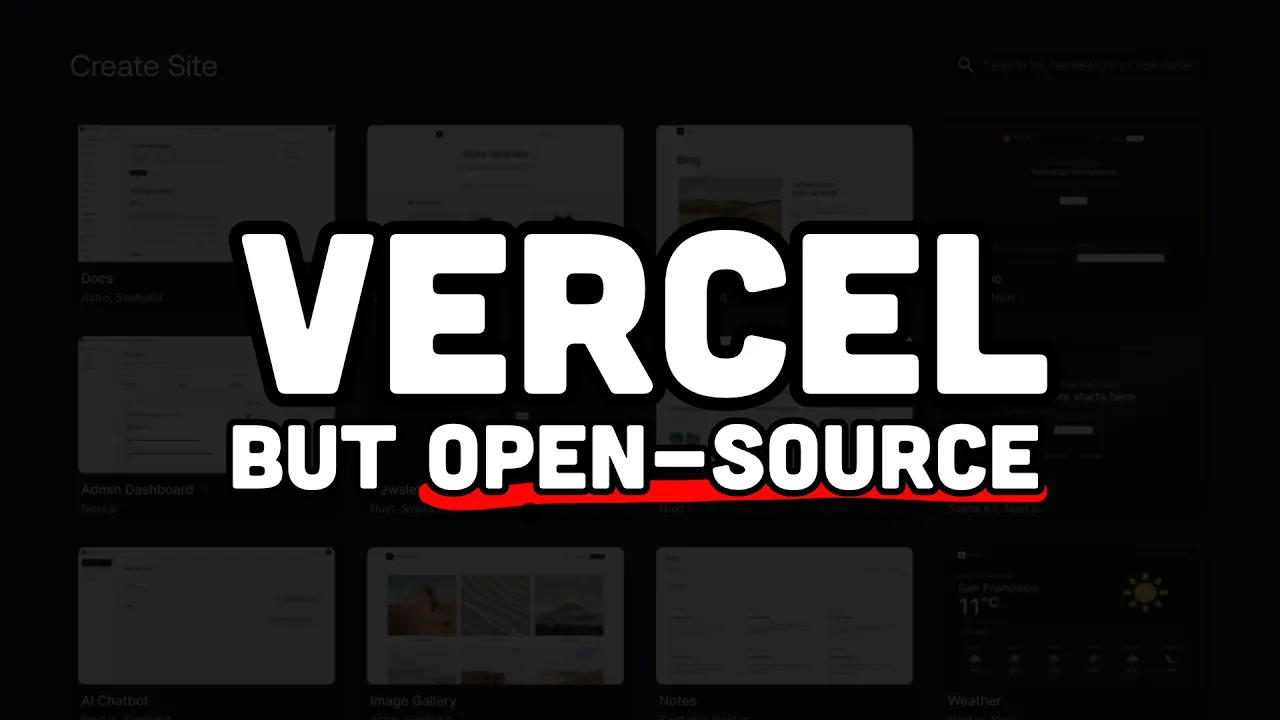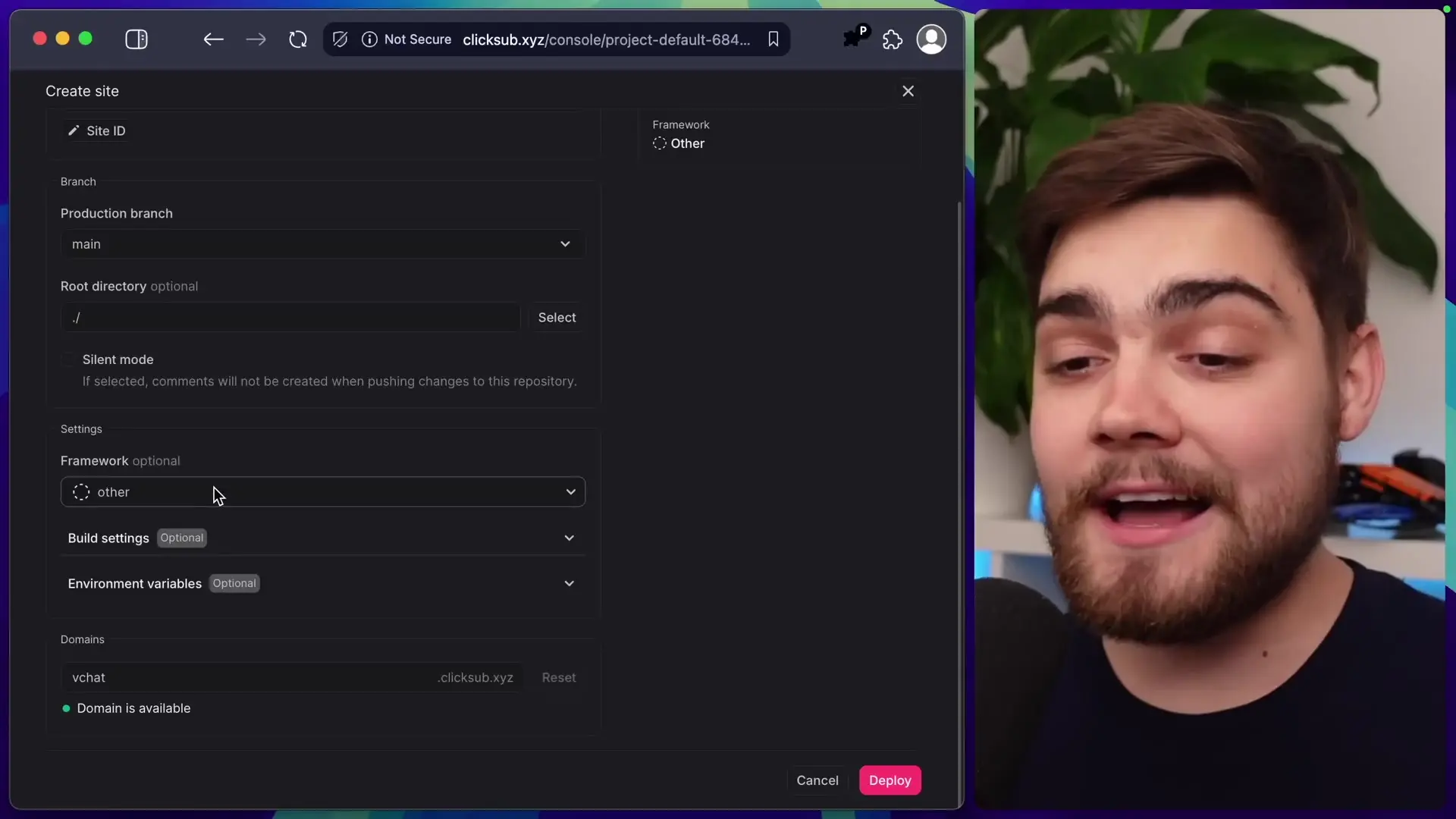
If you've been looking for an open-source alternative to Vercel, Netlify, or Heroku that you can self-host, Apprite might be exactly what you need. This platform promises to deliver the same seamless deployment experience that made Vercel popular, but with the added benefit of complete ownership over your infrastructure.
What Makes Vercel Great (And How Apprite Compares)
Vercel has gained popularity for its exceptional deployment capabilities. The time to deploy from git changes for any project type is typically minutes or less, with a relatively stress-free experience. The question is: can Apprite deliver the same experience when self-hosted? Let's find out while exploring some of the extra self-hostable features Apprite offers, including storage, authentication, and databases.
Setting Up Apprite: A Three-Step Process
Getting started with Apprite is surprisingly straightforward. Here's how to deploy your own Vercel-like platform:
Step 1: Deploy Apprite
Deployment is super easy through Docker Compose. You can run this on any cloud provider - in this case, we're using a Digital Ocean droplet. The Docker Compose file includes several services that work together to bring you that Vercel-like experience.
# Example docker-compose.yml for Apprite
version: '3'
services:
apprite:
image: apprite/apprite:latest
ports:
- "3000:3000"
environment:
- NODE_ENV=production
volumes:
- apprite-data:/data
volumes:
apprite-data:Step 2: Configure the Dashboard
Once deployed, you can access the dashboard through your server's IP or a custom domain. You'll need to create an account for your server - it's important to note this is not an Apprite cloud account, but rather an account specific to your self-hosted instance.
Step 3: Connect Apprite to GitHub
To enable automated deployments based on commits, you'll need to connect Apprite to GitHub. Follow the documentation on creating a GitHub app, which only takes a few minutes. Then set the required environment variables in your app.env file and restart Docker Compose.
# Example environment variables for GitHub integration
GITHUB_APP_ID=your_app_id
GITHUB_APP_PRIVATE_KEY=your_private_key
GITHUB_CLIENT_ID=your_client_id
GITHUB_CLIENT_SECRET=your_client_secretDeploying Your First Site with Apprite
Now that Apprite is set up, let's see how the deployment experience compares to Vercel. The dashboard has a clean, modern UI that feels familiar if you've used Vercel before.

To create a new site, click on "Create Site" and you'll be given three options: clone a template, connect to a repository, or drag in your files manually. For automated deployments, connecting to a git repository is the way to go.
- Select your repository from the list of available GitHub repositories
- Choose your production branch (typically main or master)
- Select your framework to automatically configure build settings
- Review and adjust build settings if needed (install command, build command, output directory)
- Add any required environment variables
- Click deploy to start the build process
After about a minute, your site will be deployed successfully and assigned a subdomain on your custom domain (similar to how Vercel provides projectname.vercel.app domains).
Preview Deployments and Branch Management
One of Vercel's most valuable features is preview deployments for branches and pull requests. Apprite also offers this functionality, automatically creating deployments for new branches.
When you create a new branch and push changes, Apprite automatically detects the change and creates a new deployment. These preview deployments are protected behind your Apprite login, ensuring that only authorized users can access them.

The dashboard provides an easy way to manage deployments. You can see all past deployments, their status (ready or active), and can activate any deployment to make it the production version. This makes it simple to roll back to previous versions if needed.
Beyond Deployments: Apprite's Additional Features
What sets Apprite apart from being just a Vercel clone is its additional self-hostable services that create a complete application platform:
Authentication (Auth)
Apprite includes a built-in authentication service that can manage users for your applications. You can view and manage user accounts, verify emails (if you set up an SMTP server), reset passwords, configure multi-factor authentication, and integrate with OAuth providers like Google and GitHub.
Database Management
The platform offers integrated database management with a clean UI. You can view all your tables, browse and modify data, all without leaving the Apprite dashboard.
Storage
Apprite provides file storage capabilities, allowing you to upload, manage, and serve files for your applications. You can view uploaded files, change permissions, and delete files as needed.
Additional services include Functions and Messaging, making Apprite a comprehensive solution for your application needs.

Room for Improvement
While Apprite delivers an impressive Vercel-like experience, there are some features that could be improved. One notable missing feature is the ability to set different environment variables for preview deployments versus production deployments.
In Vercel, you can configure environment variables specifically for preview environments, which is extremely useful when testing backend changes or integrating with different services in development versus production. Currently, Apprite seems to use the same set of environment variables across all deployments.
Conclusion: Is Apprite the Open-Source Vercel Alternative You're Looking For?
Apprite successfully mirrors the Vercel deployment experience while giving you ownership over the platform where your projects are hosted. The added benefit of being open-source means you have full visibility into the code running your deployment platform.
If you're looking for a self-hostable alternative to Vercel, Netlify, or Heroku that provides similar ease of use along with additional features like authentication, database management, and storage, Apprite is definitely worth considering. The platform offers the perfect balance between the convenience of managed services and the control of self-hosting.
- Easy to deploy through Docker Compose
- Clean, intuitive UI similar to Vercel
- Automated deployments from Git
- Preview deployments for branches
- Built-in authentication, database, and storage services
- Complete control through self-hosting
For developers and teams looking to maintain control over their infrastructure while still enjoying the benefits of modern deployment platforms, Apprite represents an excellent open-source alternative to commercial services like Vercel, Netlify, and Heroku.
Let's Watch!
How to Deploy Your Own Vercel-Like Platform in Minutes: Apprite Review
Ready to enhance your neural network?
Access our quantum knowledge cores and upgrade your programming abilities.
Initialize Training Sequence